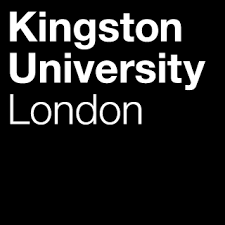Respiratory care for the acute setting

24 Oct 2024 (Intake closed)
Apply by: 10 Oct 2024
New Session
24 Oct 2024 (Skills day), 07 Nov 2024 (On Campus), 21 Nov 2024 (Online), 05 Dec 2024 (Online), 12 Dec 2024 (Skills day)
Course overview
This is an option module within the MSc Healthcare Practice programme and the PGDip/MSc Advanced Clinical Practice programme. It may also be taken as a free-standing module. The module is suitable for nurses and other registered healthcare professionals working with respiratory patients in an acute setting. It is designed to equip students with the knowledge and skills to assess and manage patients with acute respiratory presentations.
Aims
The module will enhance student’s knowledge of the pathophysiology and its application to the diagnosis and evidence-based management of patients with common acute respiratory presentations.
What and how you will learn on this module
How you will learn:
This module is delivered using a blended learning approach which integrates a variety of on-campus and online activities, supported by Canvas, the University’s virtual learning environment. A complementary range of activities are employed to engage you in the critical exploration of key topic areas, and the completion of formative tasks during the module also helps to keep you on track with the learning and gain feedback on your understanding of the content. A sense of community is developed and maintained with frequent opportunities for peer learning, enabling you to share your practice experiences and to learn from each other. Level 6 and level 7 students taking this module may be taught together.
Academic writing and critical thinking skills are developed through ‘The Critical Thinking Skills Toolkit’ and other academic practice activities embedded within the module, that have been designed to nurture the skills needed to facilitate you to become a thoughtful, objective and reasoned thinker. This will help you tackle the assignment(s) confidently, understand marking criteria, use evidence, take a reasoned approach, make structured arguments and engage with other points of view.
What you will learn:
Respiratory anatomy & physiology
• Structures and function
• Defence mechanisms
• Pulmonary circulation
• Gas exchange
• Control of breathing
• Ventilation and perfusion.
Respiratory assessment
• Clinical assessment (to include history taking, inspection, palpation, percussion, auscultation)
• Arterial blood gas interpretation
• Pulse oximetry
• Introduction to chest auscultation and chest X-ray interpretation
• Peak flow measurement.
Acute disorders & their management
• Acute exacerbation of COPD
• Asthma
• Cardiogenic pulmonary oedema
• Pulmonary embolism
• Oxygen therapy, humidification, nebulisation, drug therapies
• Airway management
• Management of intrapleural chest drains
• Relevant guidelines and recommendations for practice.
Tracheostomy care
• Indications for tracheostomy placement
• Types of tracheostomy tube
• Airway management, suction, humidification
• Emergency care of the patient with a tracheostomy.
Non-invasive ventilation
• Indications for non-invasive ventilation (BiPAP and CPAP)
• Machines, modes, circuits and interfaces
• Initiating NIV
• Complications of NIV
• Weaning NIV
• Relevant guidelines and recommendations for practice.
Academic practice
• Database searching
• Referencing and avoiding plagiarism
• Critical Thinking Skills Toolkit.
Course Length: 5 teaching days
Assessment
Case Review (3000 words) and Competency assessment document
Learning Outcomes
Demonstrate a deep and systematic knowledge of the applied anatomy and physiology of the respiratory system.
Use a systematic approach to undertake a comprehensive and detailed physical assessment and interpret the patient assessment data in relation to the underlying condition of an acutely ill respiratory patient.
Critically evaluate the significance of clinical findings, scrutinise and reflect on key diagnostic criteria, while appraising the underlying pathophysiology and differential diagnoses.
Critically analyse and apply contemporary evidence to the recognition of deteriorating patients needing respiratory support, and formulate a management plan in partnership with the multi-disciplinary team.

Course details
Course leader
Siby Sikhamoni
Administrator
Kingston WFD Admissions Team
Course delivery
Downloads
Prerequisites
Programme entry requirements
Students should be working in an appropriate clinical area caring for patients with acute respiratory needs
Funding
£1,156.00

Make an enquiry
Make an enquiry
